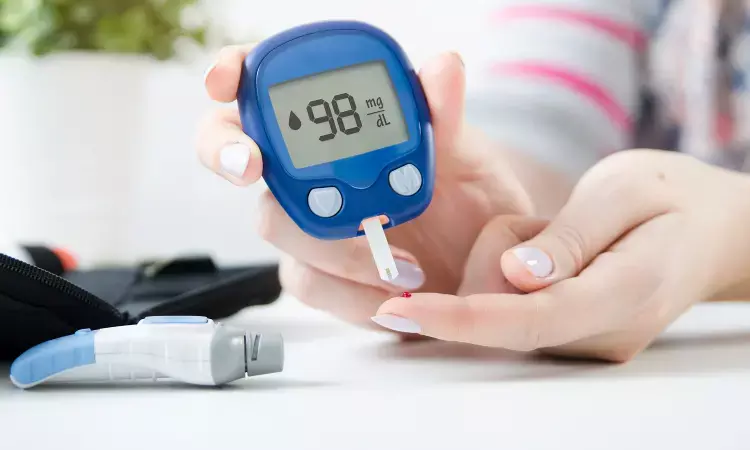- Home
- Medical news & Guidelines
- Anesthesiology
- Cardiology and CTVS
- Critical Care
- Dentistry
- Dermatology
- Diabetes and Endocrinology
- ENT
- Gastroenterology
- Medicine
- Nephrology
- Neurology
- Obstretics-Gynaecology
- Oncology
- Ophthalmology
- Orthopaedics
- Pediatrics-Neonatology
- Psychiatry
- Pulmonology
- Radiology
- Surgery
- Urology
- Laboratory Medicine
- Diet
- Nursing
- Paramedical
- Physiotherapy
- Health news
- Fact Check
- Bone Health Fact Check
- Brain Health Fact Check
- Cancer Related Fact Check
- Child Care Fact Check
- Dental and oral health fact check
- Diabetes and metabolic health fact check
- Diet and Nutrition Fact Check
- Eye and ENT Care Fact Check
- Fitness fact check
- Gut health fact check
- Heart health fact check
- Kidney health fact check
- Medical education fact check
- Men's health fact check
- Respiratory fact check
- Skin and hair care fact check
- Vaccine and Immunization fact check
- Women's health fact check
- AYUSH
- State News
- Andaman and Nicobar Islands
- Andhra Pradesh
- Arunachal Pradesh
- Assam
- Bihar
- Chandigarh
- Chattisgarh
- Dadra and Nagar Haveli
- Daman and Diu
- Delhi
- Goa
- Gujarat
- Haryana
- Himachal Pradesh
- Jammu & Kashmir
- Jharkhand
- Karnataka
- Kerala
- Ladakh
- Lakshadweep
- Madhya Pradesh
- Maharashtra
- Manipur
- Meghalaya
- Mizoram
- Nagaland
- Odisha
- Puducherry
- Punjab
- Rajasthan
- Sikkim
- Tamil Nadu
- Telangana
- Tripura
- Uttar Pradesh
- Uttrakhand
- West Bengal
- Medical Education
- Industry
Extent of Blood sugar variability 1 year after diagnosis of diabetes predicts CV events

The study from Surrey suggests that controlling blood sugar levels within the first year of diagnosis reduces the incidence of major cardiovascular events. Furthermore, the team also found that the more a patient's blood levels varied 12-months after diagnosis, the more likely they were to experience dangerous cardiovascular events.
Dr Martin Whyte, co-author of the study and Reader in Metabolic Medicine at the University of Surrey, said:
"The conventional wisdom has been to slowly and steadily treat type 2 diabetes with diet and medicine dose-escalation over years-the period over which it took people to reduce their sugar levels after diagnosis was thought less important for major vascular protection. However, our observational study suggests that getting blood levels under control quickly-within the first 12 months after diagnosis-will significantly help reduce cardiovascular events."
Type 2 diabetes is a common condition that results in the level of sugar in the blood becoming too high. The condition is linked to obesity or a family history of type 2 diabetes and can increase a person's risk of getting serious health conditions.
The University of Surrey's study used Royal College of General Practitioners' Research and Surveillance Centre database to perform a comprehensive examination of glycaemic control achieved within the first year of diagnosis and subsequent blood sugar level variability with cardiovascular disease incidents.
For more details, visit on the following link:
Dr Kamal Kant Kohli-MBBS, DTCD- a chest specialist with more than 30 years of practice and a flair for writing clinical articles, Dr Kamal Kant Kohli joined Medical Dialogues as a Chief Editor of Medical News. Besides writing articles, as an editor, he proofreads and verifies all the medical content published on Medical Dialogues including those coming from journals, studies,medical conferences,guidelines etc. Email: drkohli@medicaldialogues.in. Contact no. 011-43720751


